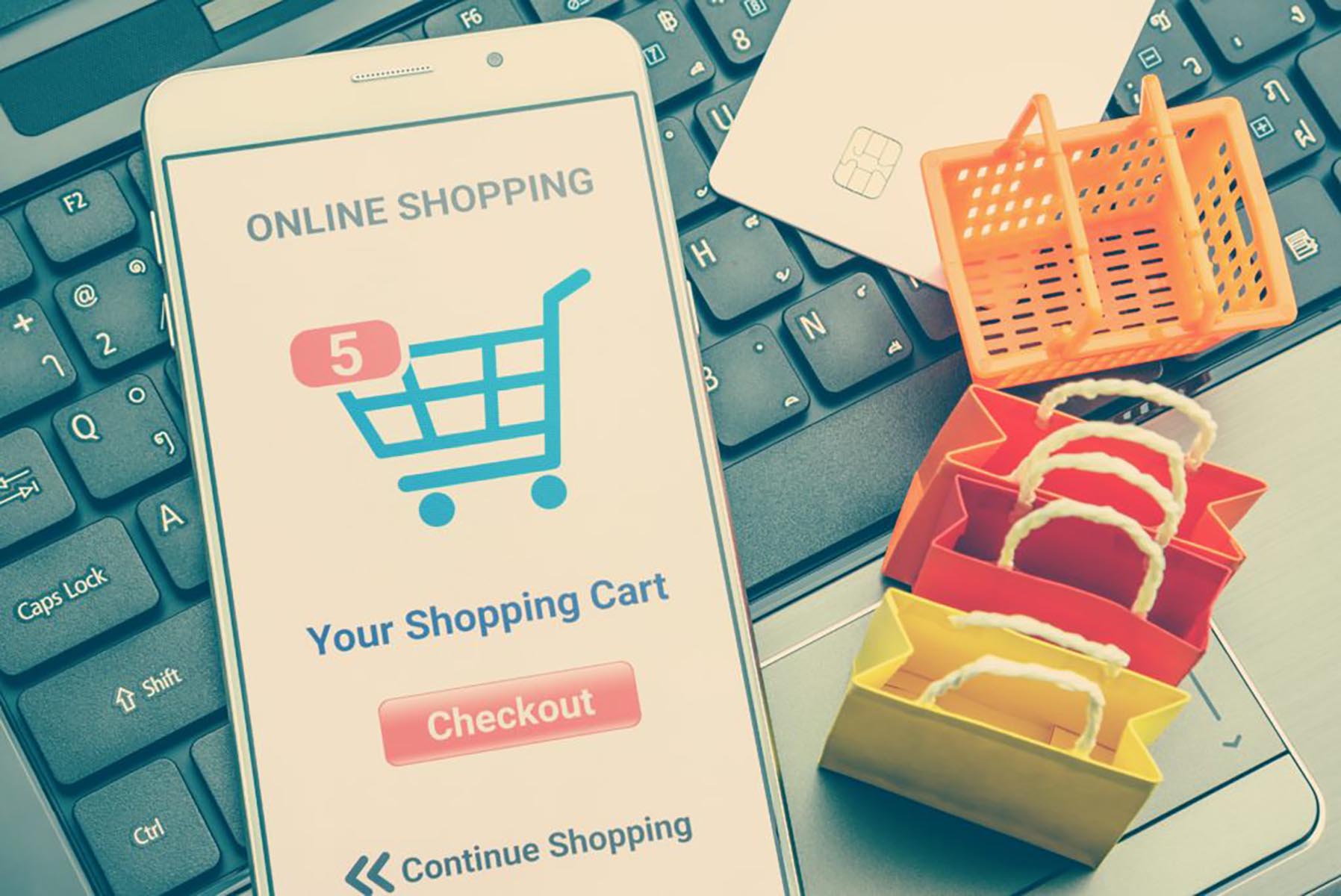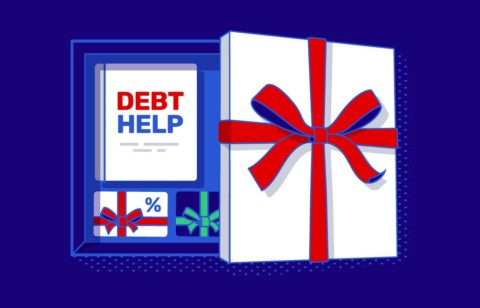We all tend to overspend from time to time, and it usually happens when we buy something impulsively. While splurging on something unexpected every now and then is probably not going to be a major problem financially, doing so regularly could put you into financial turmoil. It’s especially important that you think through your purchases when buying big-ticket items, as an impulsive buy on something expensive could definitely hurt you financially. Moreover, part of every successful financial picture is the ability to control spending and stick to certain goals over the long haul. So, what strategies can we use to keep our spending under control and build our financial future? Let’s look at a few simple tips.
Tip #1: Only Carry Cash
When you carry and spend cash, you have to watch the actual money leave your hands. That’s a completely different buying experience than using a credit card. When you see your money spent, it’ll definitely help you curb those impulse buys, especially when you think about how hard you had to work to get that money. In addition, if you’re budgeting and only have a certain amount of money for the week, it’ll be harder to spend your money foolishly. Try only carrying cash (not a lot of it at any given time, either) and watch your spending decrease. Even forking over a few bucks for a gourmet coffee will give you pause.
Tip #2: Don’t Carry Credit Cards in Your Wallet
Not carrying credit cards in your wallet will go a long way toward keeping you from making impulse buys and overspending. It’s easy to justify buying something when you can just charge it on a credit card and worry about it later. You can avoid this by just leaving the cards at home and only using them in an emergency, or better, not at all. Credit cards are best as a last line of defense for emergency expenditures.
Tip #3: Budget Your Money
When you take the time to formulate a budget and make smart choices on how you’ll spend your money, it’ll be hard to deviate from that plan once you put in the effort. Just being aware of what you’re spending your money on can go a long way toward keeping control of what you spend. By designating a purpose for every dollar you earn, you’ll then have to make conscious decisions to take money from a specific area to fund your impulsive buy. Sticking to a budget is the best way to keep from overspending and making impulse buys that can put your financial stability in jeopardy.
Tip #4: Formulate a Long-term Financial Plan
When you define your financial goals and develop a long-term plan of how you want to build your financial future, it takes you out of the moment and makes you look forward in your life. Staying out of the buying moment and focused on the long-term will help you keep your purchases in perspective and keep you grounded. Maybe your long-term plan means saving up to buy your first home or to start funding your retirement early. By getting a plan in mind and understanding what it’ll take to reach your financial goals, you’ll be better able to make good buying decisions and spend your money wisely.
Tip #5: Don’t Shop with Others
While this may sound like a very antisocial piece of advice, this is actually a great way to avoid destructive, impulsive buys. Peer pressure can often contribute to overspending. No one likes to appear cheap, and everyone likes to pretend that money doesn’t matter. Succumbing to an impulsive purchase because of peer pressure means spending money you don’t have and putting yourself into a difficult situation. This is especially true if you’re shopping with a friend who has more money to spend than you do, or who has a spending problem as well. Don’t let anyone push you or embarrass you into spending more money that you can afford to spend, as you’ll pay the financial price long after the thrill of the purchase is gone.
Tip #6: Don’t Shop to Improve Your Mood
Don’t use shopping to make yourself feel better. While buying something may make you happy, the feeling will be fleeting and temporary. Spending money to assuage your bad mood is a bad way to deal with your feelings, and it could lead to long-term spending issues. These issues can lead to financial difficulties and even financial ruin if this behavior gets out of control. Find productive ways to cope with your feelings and learn better ways to deal with your stress.
Tip #7: Know Your Limitations
Everyone has weaknesses. Whether it’s clothes, home décor, or food items, learn to avoid situations where you might be tempted to overspend. Exercising self-discipline is like flexing a muscle; it gets easier every time. Stay away from shops and eating establishments that might tempt you to spend more money than you should. While you may feel great while shopping or eating there, regret will quickly set in after you leave to go home.
Tip #8: Plan When You’re Ready to Buy
When you set out to shop for things you really need, make a list and a promise to stick to it. Throwing caution to the wind and just winging it is never a good way to go when it comes to money. Most consumers spend way more money than they should simply because they don’t plan their purchases. Having a plan also helps you find the best deals and make better buying choices, especially on big-ticket items.
Tip #9: Put Your Financial Goals Down on Paper
Writing down your goals can help make them real and tangible. It also serves as a good reminder of what you’re trying to accomplish. Write them out on a small card and keep them in your wallet. There, they’ll constantly remind you to stick to your goals and not overspend or make impulsive buys. Adhering to your goals is imperative when you’re planning for your retirement or saving for your child’s education. Don’t let impulsive spending derail you from achieving the things most important in life.
Tip #10: Eliminate Temptations
There’s no reason to allow temptations to creep into your life and throw you off track. Opt out of emails from the places that you love to shop that constantly advertise enticing sales and discounts. Ask that these same retailers and others stop sending you catalogs and flyers.
Tip #11: Delay Your Purchases
When you see something that you think you really need, especially if it’s a big-ticket item, don’t buy it right away. Instead, wait a week or so. Many times, the need will fade over time and you’ll realize that you don’t really need it or you don’t need to spend as much money as you thought. Delaying your purchases will allow you to re-evaluate your needs to be sure you’re making good decisions. It’ll also give you time to shop around to be sure you’re getting the best deal.
Tip #12: Stay Away from Places That Encourage You to Spend
If you put yourself in a position to spend money, you most likely will. Don’t just go to the mall and wander around with no plan in mind. This same rule holds true for your favorite shops and boutiques. Don’t just pop in to see what’s new or to visit with the shopkeeper. Doing so will only tempt you to buy things you don’t need. When you do have a purchase you need to make, just get it and go; don’t use it as an excuse to look around to see what else you might be tempted to buy.
Tip #13: Stay off Internet Shopping Sites
Many people will pass the time online and “window shop” for the things they like. This is fine as long as you don’t go through with the purchases every time. Sites such as Amazon make it all too easy to buy items with a credit card on file. Just a couple of clicks are all that’s necessary to spend your money. Buying online is an even further detachment from spending actual cash, as you don’t even need to hand over the credit card! Many people have created financial difficulties for themselves by overspending on the internet.
Tip #14: Keep Track of Your Urges to Spend
Sometimes, you don’t even realize how often you get the urge to spend money needlessly. This can make it difficult to change your behavior if you have a spending problem. Try keeping track of your urges to spend, in an effort to become more self-aware. Use a tally system or keep a list on your phone. When you do have the urge to spend, note it and replace the urge with something productive such as reading a chapter in a self-improvement book or even sending a nice text or email to a friend or loved one. If you’re shopping on the internet, get up and take a walk, get a drink, or start another task. By replacing those urges with other things, you can begin to alter your behavior away from impulsive spending and get destructive urges under your control.
Tip #15: Do Some Math
Sometimes, putting the purchase in real money terms can help keep spending in perspective. The next time you’re faced with the idea of spending money, especially on an item that has a high cost, calculate the number of hours you’ll have to work to pay for it. Don’t forget: hours we spend working are hours we give up with family and doing leisure activities that we really enjoy. Ask yourself if you’re willing to make that sacrifice just to have the material item you’re considering.
Tip #16: Put Your Credit Cards on Ice
If you regularly spend too much money on your credit cards but aren’t comfortable with giving them up altogether, consider putting a freeze on them. While you can go online with most credit cards and put a freeze on them, there’s an even better way to keep yourself from using them impulsively. Put the card in a zippered bag with water and actually freeze it your freezer. This will mean you’ll have to wait until it thaws out to use it. Sometimes, just having to wait a few hours will allow the urge to pass.
Tip #17: Have a Conversation with Yourself
Before you spend money on a big purchase or make a buy on impulse, ask yourself some important questions. Why is buying this item so important to you? Are you using this purchase to soothe a feeling, such as depression or inadequacy? Is having this item going to make life better for you? Asking and answering these questions will help you keep purchases in perspective and keep you from having buyer’s remorse later on.
Developing some good strategies and skills to keep from overspending and wasting money on impulsive buys will help you reach your financial goals faster and easier. It’ll also keep you out of trouble when it comes to debt. Use these simple ways to stay on track and put your hard-earned dollars to their best use.





